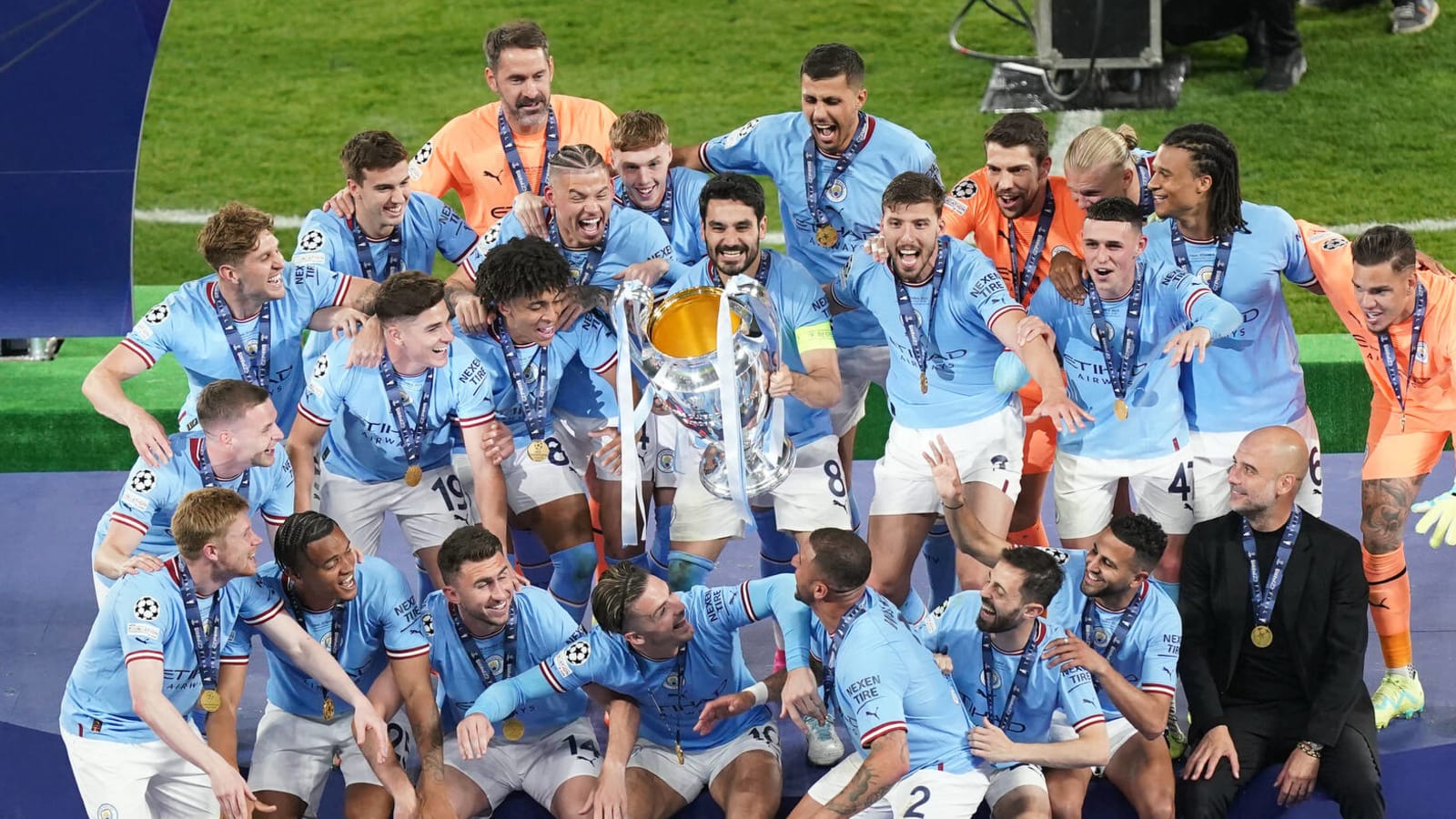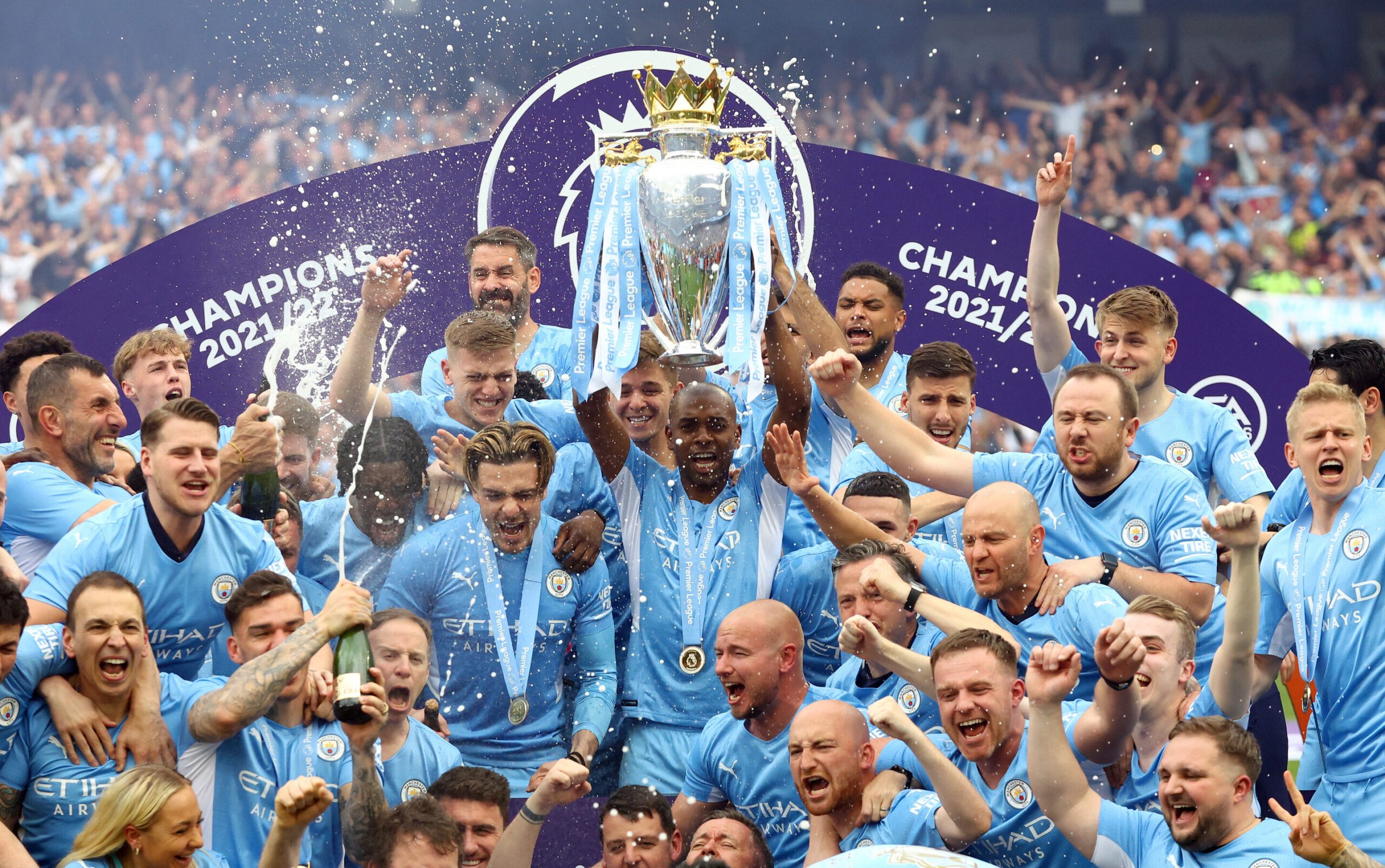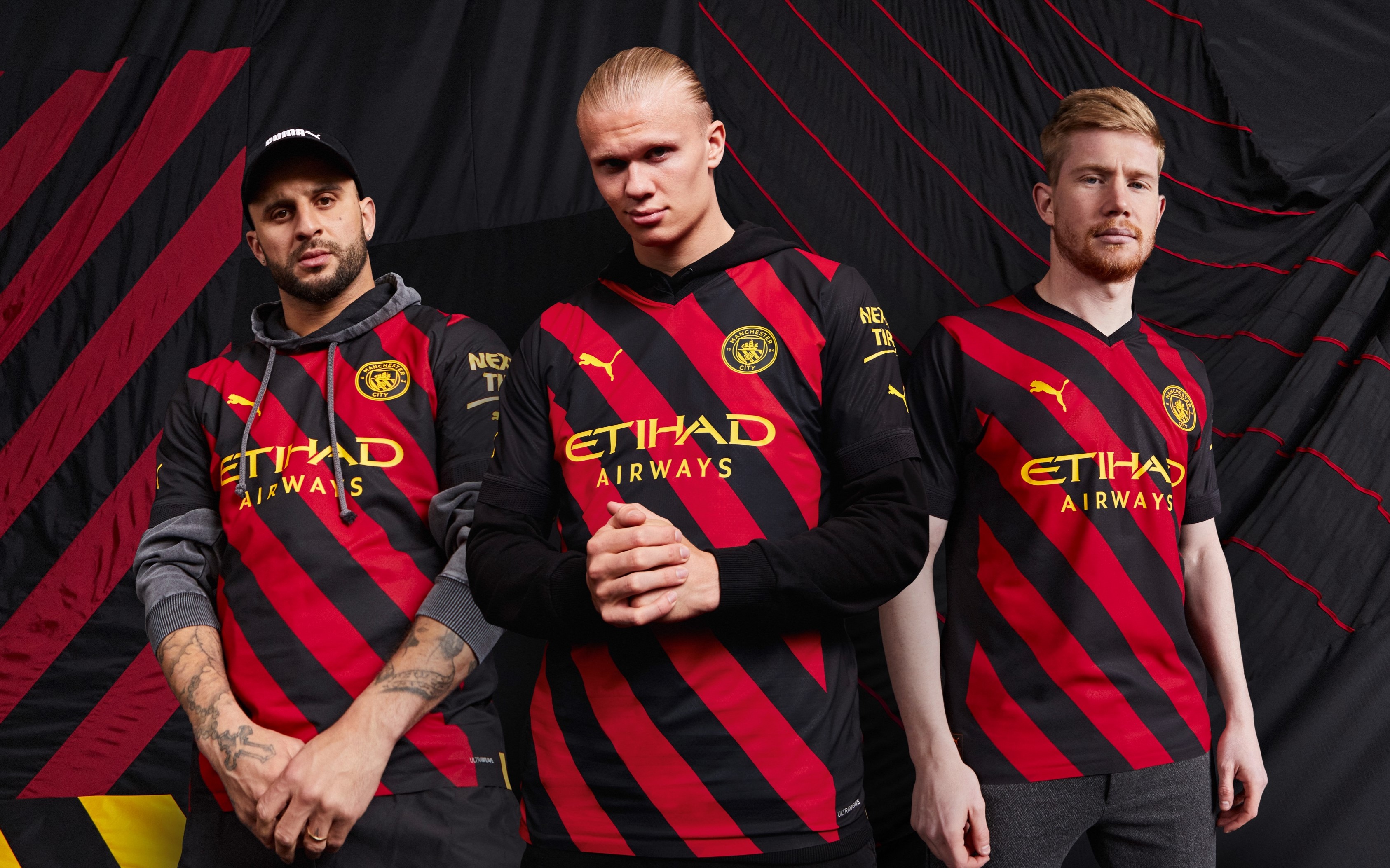Manchester city 5 in a row – Manchester City 5 in a row? The unprecedented possibility of a fifth consecutive Premier League title hangs heavy in the air. This isn’t just about sustained success; it’s about the creation of a modern football dynasty, a testament to meticulous planning, strategic investment, and unparalleled on-field execution. The question isn’t
-if* City can achieve this feat, but rather how they’ve built a machine so dominant, seemingly capable of rewriting the history books.
This potential five-peat represents a remarkable period of dominance, surpassing even the achievements of some of the Premier League’s most iconic teams. A deep dive into the team’s tactical flexibility, shrewd recruitment, and the individual brilliance of its players reveals a blueprint for sustained success, one that is both fascinating and intensely analyzed by rivals and football analysts alike.
The impact of Pep Guardiola’s managerial prowess, coupled with the club’s financial strength, has undeniably shaped this era of unparalleled dominance.
Manchester City’s Potential Five-in-a-Row: A Reign of Dominance: Manchester City 5 In A Row
Manchester City’s recent success has been nothing short of extraordinary. Their potential achievement of five consecutive Premier League titles would cement their place as one of the most dominant teams in English football history. This analysis delves into the multifaceted factors contributing to their unprecedented run, examining their historical context, key players, tactical strategies, financial prowess, and the influence of external factors.
Manchester City’s Dominance: A Historical Perspective

Manchester City’s current dominance builds upon a foundation laid over the past decade. A timeline of their key achievements illustrates their consistent upward trajectory.
- 2011-2012: The arrival of Roberto Mancini and significant investment mark a turning point, culminating in their first Premier League title in 44 years.
- 2013-2014: Manuel Pellegrini takes over, bringing a more possession-based style, securing another league title.
- 2017-2018 onwards: Pep Guardiola’s appointment initiates an era of unparalleled success, marked by multiple league titles, domestic cups, and consistent Champions League contention.
Comparing City’s current run to other dominant periods, such as Manchester United’s under Sir Alex Ferguson, reveals both similarities and differences. While both eras involved sustained investment and strong leadership, City’s success is arguably more reliant on a meticulously crafted tactical system and a deep squad rotation, unlike the more individualistic brilliance often seen in United’s teams.
The impact of managerial figures cannot be overstated. Roberto Mancini provided the initial platform, Manuel Pellegrini refined the style, and Pep Guardiola elevated it to a new level of tactical sophistication and consistency. Guardiola’s influence on player development and tactical flexibility is paramount to City’s sustained success.
| Season | Goals Scored | Goals Conceded | Points Total |
|---|---|---|---|
| 2018-2019 | 95 | 23 | 98 |
| 2019-2020 | 102 | 35 | 81 |
| 2020-2021 | 83 | 32 | 86 |
| 2021-2022 | 99 | 26 | 93 |
| 2022-2023 | 94 | 33 | 89 |
Key Players and Their Contributions
Manchester City’s success is built on a collective effort, but certain players have consistently stood out. Their on-field brilliance and leadership qualities are crucial to the team’s overall performance.
- Kevin De Bruyne (Midfielder): Exceptional playmaking ability, assists, and goalscoring prowess.
- Erling Haaland (Striker): Record-breaking goalscoring feats, clinical finishing.
- Ruben Dias (Defender): Defensive solidity, leadership, and organization at the back.
- Rodri (Midfielder): Defensive midfield presence, ball retention, and distribution.
Examples of crucial performances abound. Kevin De Bruyne’s assists in crucial Champions League matches and Erling Haaland’s prolific goalscoring runs have often been pivotal in securing victories.
| Player Name | Position | Key Stats (Example: Goals/Assists) | Impact |
|---|---|---|---|
| Kevin De Bruyne | Midfielder | High assists, key passes | Playmaking, creativity |
| Erling Haaland | Striker | High goalscoring rate | Clinical finishing, goals |
| Ruben Dias | Defender | High tackles, interceptions | Defensive solidity, leadership |
| Rodri | Midfielder | High passes completed, ball recoveries | Defensive midfield control |
Tactical Approach and Strategic Advantages

Pep Guardiola’s tactical flexibility is a hallmark of Manchester City’s success. Their ability to adapt to different opponents and in-game situations is a key advantage.
Key tactical elements include a possession-based style, intricate passing networks, high pressing, and fluid movement across the pitch. This approach often overwhelms opponents, creating numerous scoring opportunities. Compared to rivals like Liverpool, City’s approach is more focused on control and possession, while Liverpool’s has been more direct and counter-attacking oriented in recent seasons. The evolution of their tactics has seen refinements in pressing triggers and positional fluidity to maximize efficiency.
You also can investigate more thoroughly about barcelona vs manchester city to enhance your awareness in the field of barcelona vs manchester city.
Financial Resources and Squad Management, Manchester city 5 in a row
Manchester City’s financial resources have allowed them to assemble and maintain a world-class squad. Their recruitment strategy focuses on identifying and acquiring top talent, both established stars and promising youngsters.
The club’s meticulous scouting network and strategic transfer policies ensure a consistent flow of high-quality players. Their squad depth surpasses most Premier League teams, enabling them to cope with injuries and maintain competitiveness across all competitions. Player turnover is carefully managed, balancing experience with youth development.
| Player | Position | Transfer Fee (Example) | Performance |
|---|---|---|---|
| Erling Haaland | Striker | High | Exceptional goalscoring |
| Jack Grealish | Winger | High | Consistent performance |
| Julian Alvarez | Striker | Medium | Strong impact |
The Impact of External Factors
While Manchester City’s success is primarily attributed to their internal strengths, external factors have played a role. Injuries to key players, refereeing decisions, and even media narratives have at times influenced their results.
For example, injuries to key players in specific seasons have tested the depth of the squad, although City’s strength in depth has often mitigated the impact. Media coverage has often framed City’s success, sometimes focusing on financial advantages rather than on-field achievements. A visual representation could be a bar chart showing Manchester City’s points totals for each season alongside a secondary axis representing a quantified measure of external factors (e.g., a composite score derived from the number of key injuries, contentious refereeing decisions, and negative media sentiment).
This would visually illustrate the correlation (or lack thereof) between external factors and City’s performance across the five seasons.
The pursuit of Manchester City’s fifth consecutive Premier League title is more than just a race for trophies; it’s a study in sustained excellence. From the tactical brilliance on the pitch to the shrewd financial management off it, City’s dominance has redefined expectations within the Premier League. Whether or not they achieve the unprecedented five-in-a-row, their legacy as a modern football powerhouse is already secure, setting a benchmark for future generations to strive towards.
The question remains: can any team break this seemingly unbreakable cycle?



